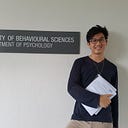This will be the first of my many reflections on the psychology of counselling. I have never written extensively on mental health, but few pages into ‘On Becoming A Person’ allowed me to think about my ideas more clearly.
One of the major milestones in becoming a counsellor is to decide on your ‘theoretical orientation’. The way I understand the field so far is that counsellors have general microskills (behaviours and common techniques which form the basis of therapeutic relationship), specific methods, and have to develop a personal style, which is derived from established theoretical orientations of counselling and their own personal traits.
It didn’t take very long for me (along with my peers and instructors) to realize that Person Centered Theory works the best for me. In fact, I probably didn’t intentionally learn and choose the theory. It seems to me that it is the way of counselling, after all what is counselling and psychotherapy that isn’t person centered. Citing my own on-the-fly explanation in a session:
‘You don’t choose a theory, the theory chooses you’.
For those who are unfamiliar, Person Centered Theory is a mainstream approach that is easy for practitioners to understand and pick up the basics, but difficult to employ it to confront issues in clients as its fundamental tenet is that ‘clients are the best experts of their own lives’. New practitioners tend to let clients take control of the direction of counselling, which many do not see as an effective idea. But based on my limited experience and exposure, it seems that when I accept the clients narrative unconditionally without values (mine and the rest of the world’s) binding the client’s most sincere desires, what they truly want will surface, which provides a direction for therapy to proceed. To quote Carl Rogers:
“It is about a client in my office who sits there by the corner of the desk, struggling to be himself, yet deathly afraid of being himself — striving to see his experience as it is, wanting to be that experience, and yet deeply fearful.”
In this context, the purpose of counselling is to see through that fear and be with the clients as they decide if they want to walk through it.
Originally published at experimentalanecdotes.wordpress.com on September 8, 2018.
